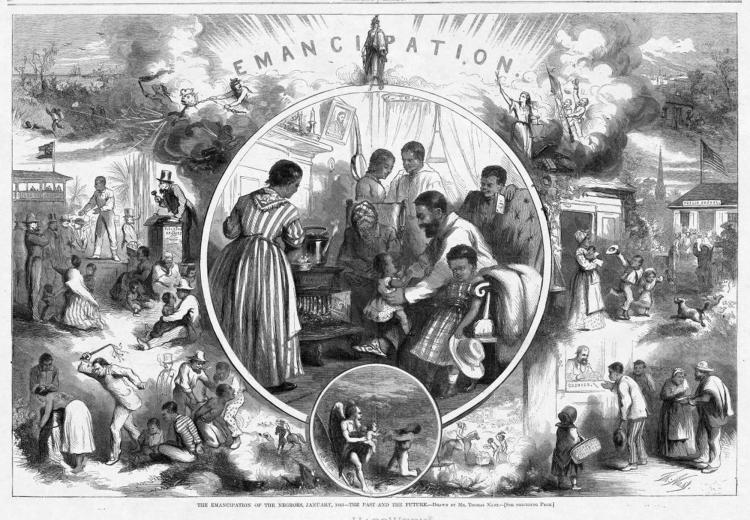Student Activity
Emancipation Proclamation: Activity 3. The African American Perspective

Photo caption
"The Emancipation of the Negroes, January, 1863—The Past and the Future"
Read the Letter from the Mother of a Northern Black Soldier to the President, July 31, 1863 and consider the questions that follow:
- Who wrote this letter?
- What do you know about this individual from the letter?
- Under what circumstances was this letter written?
- Why was this letter written, i.e., what action(s) does the author request of President Lincoln?
- Upon what grounds does she make her request?
- What most concerns her regarding the Proclamation?
- What do we learn from this letter about emancipation?
- How would you describe the tone of this letter? Is the tone important? Why or why not?
Read the Letter of a Massachusetts Black Corporal to the President, September 28, 1863 written by Corporal James H. Gooding of the 54th Massachusetts Colored Infantry (the troops celebrated in the film Glory), which complains to Lincoln of unequal pay for white and African American soldiers and consider the questions that follow:
- Who wrote this letter?
- What do we know about this individual?
- Under what circumstances was this letter written?
- Why was this letter written, i.e., what "common grievance" motivates the author to write to Lincoln?
- What important distinction does he bring to the attention of Lincoln?
- List some of the facts which he uses to support this distinction.
- Why does the author not consider himself and his men "fit subjects for the Contraband act"?
- Why does he address Lincoln as the "chief Magistrate of the Nation"?
- How would you describe the tone of this letter? Is the tone important? Why or why not?
